Supporting Your Young Child When You Have Breast Cancer
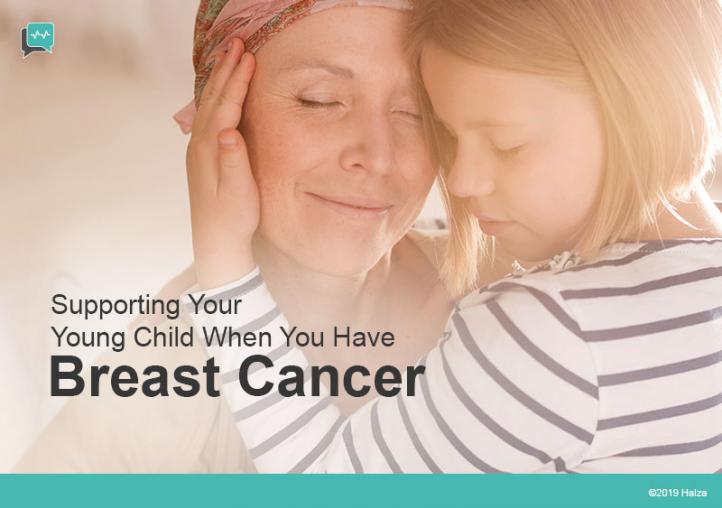
A diagnosis of breast cancer can be terrifying to any woman.
But to a mother caring for a young child, the diagnosis brings an additional set of worries.
Going through treatment for breast cancer while raising children is never easy, but emotional distress can be minimized by thoughtful communication, acknowledgment of your child’s concerns, and some careful planning.
When Should I Tell My Child I Have Breast Cancer?
There can be a few stressful weeks between discovering a lump in the breast and actually beginning treatment – usually surgery, radiation, or chemotherapy.
Children are able to sense when their parents are stressed or something is wrong, although young children might not be able to verbalize it. Unless your child is an infant, it may be best to bring up the subject before they invent their own completely misguided story about why Mommy is acting differently.
Also, news can spread quickly, so it’s best to bring it up with your child before they hear about it from a child on the playground, a relative, a teacher, or anyone other than you.
Unfortunately, the first few weeks can be an overwhelming whirlwind of medical appointments conversations, research, and sometimes tears. You will need some time to sort through all of the information before you are ready to speak with your child about what is going on.
In the meantime, a young child can be told something like “Mommy is having a grumpy (or sad) week. It’s not your fault, and she would love a hug from you.” If possible, enlist someone to distract your young child with enjoyable activities such as baking, going to a library, helping in the garden, or taking them to a playdate.
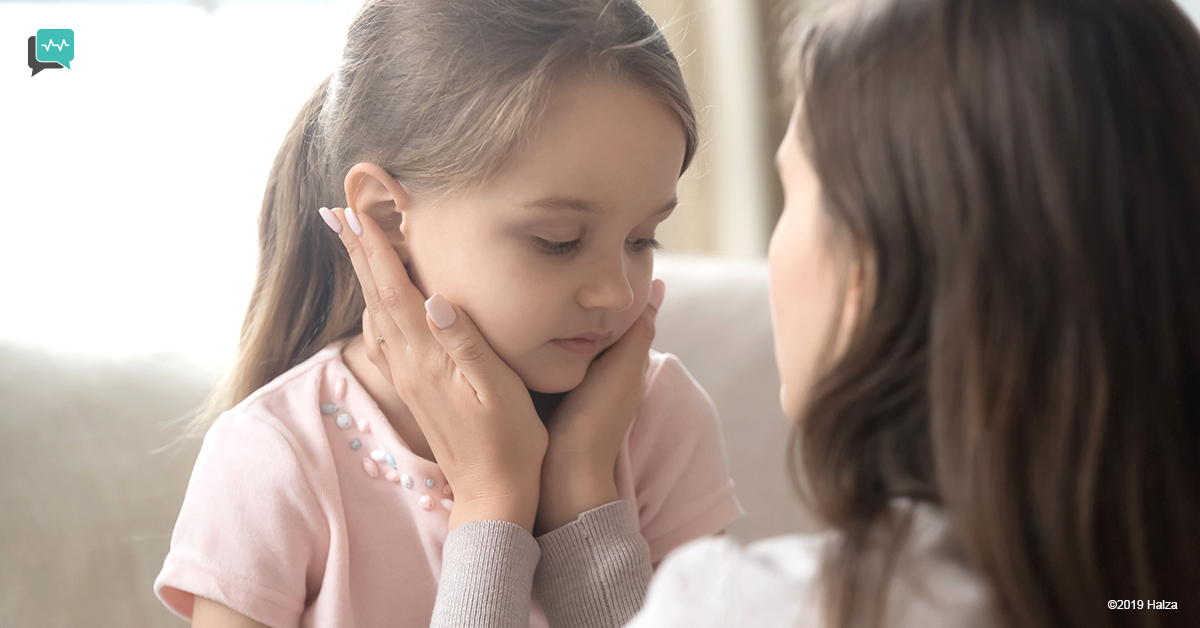
What is the Best Way to Tell My Child That I Have Breast Cancer?
No two children are alike, and you will have to tailor your discussion to your own child. However, we can provide some suggestions:
Have the conversation in a quiet, familiar space without any distractions.
- Don’t let the conversation get cut short because of an interruption. It can be impossible to get a young child back on track once the phone has rung or a cooking timer goes off.
Have an additional adult present.
- If your child is in a two-parent household, both parents should be present to provide support. If you are a single parent, it might be helpful to have another supportive adult present, preferably someone close with both you and your child.
Have the conversation when you are feeling calm and can be matter-of-fact.
- Young children have not yet developed their own coping skills, and they rely on their parents to provide emotional strength and stability. Of course, it is extremely difficult to tell a child that you have cancer, and you might cry.
If you do cry, explain that it is normal for grownups to cry sometimes, and that is okay for your child to cry or to tell you that they are feeling bad.
How Can I Help My Child Understand the Information?
First, ask your child what they have heard, if anything, about cancer.
Cancer comes in many forms and is treated in many different ways with varying side effects and degrees of success. There are many misconceptions out there, and your child’s understanding of cancer might be very different from your expected experience.
Use language they can understand.
- A five-year-old can understand “bad lump” but will not understand “malignant tumor. Similarly, a five-year-old will not understand what a “general anesthetic” is but can understand that the doctors will give you special medicine so that you won’t feel any pain during the operation.
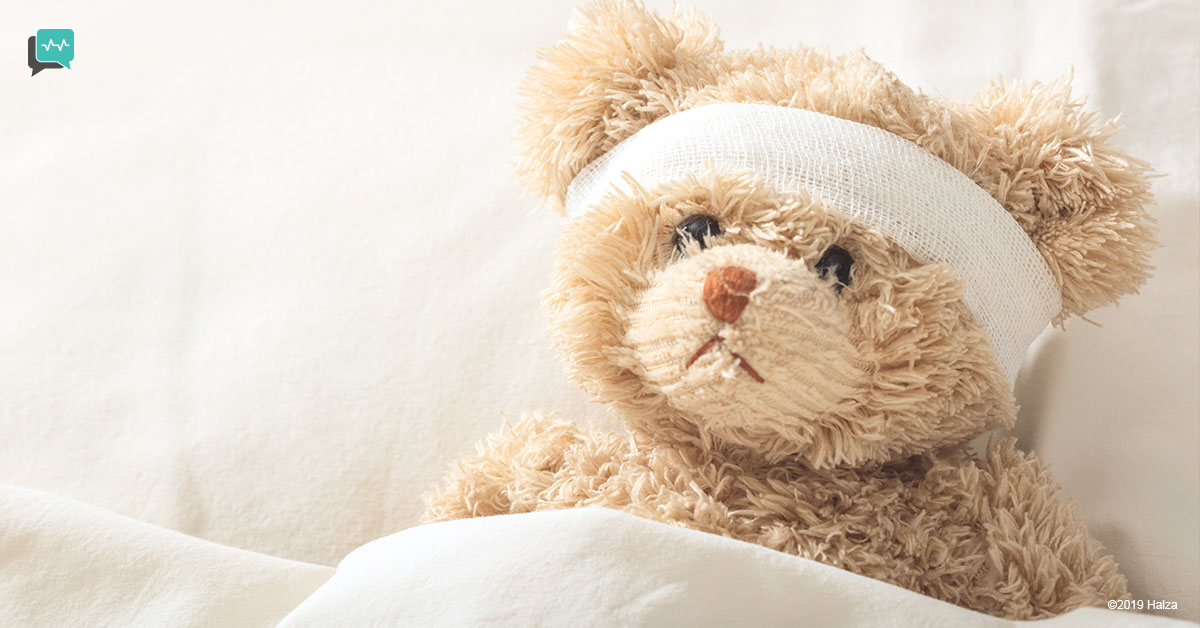
Use props for younger children.
- You can use dolls to talk about upcoming surgery (don’t perform the surgery on the doll, of course, but you can put a bandage on the doll and treat the bandaged doll very gently, as you would be treated after surgery).
- For children who don’t play with dolls, a crayon drawing can be helpful.
- Some cancer associations have published on-line or print storybooks that you can read with your young child. One such example is “Mummy’s Lump”. Read any stories in advance to be sure they relate to your situation.
If you have post-surgical drains that the child is likely to see, describe or draw them before the child sees them and explain that they are only there for a few days. Reassure them that the drains do not hurt.
What Does My Child Need to Know About My Breast Cancer?
According to the American Cancer Society, all children should be told four things:
- The name of the cancer, such as breast cancer or lymphoma
- The part of the body where the cancer is
- How it will be treated
- How their own lives will be affected
The amount of detail that you give your child will mainly depend upon the child’s age.
Some young children are unusually bright for their age, but don’t confuse cognitive abilities with emotional development. Only tell them what they can handle emotionally.
Conversations about treatment should continue after the initial conversation.
Providing too much information at once, especially to younger children, will not be effective. However, as expected side effects are about to happen, it is important to tell your child so that they are not surprised at hearing Mommy vomit or seeing her hair fall out.
Tell the child that even though Mommy seems sicker, it is actually part of getting better. Tell your child that cancer is not contagious and that we don’t know why some people get it, but the child had nothing to do with it.
Young children are especially likely to believe that they somehow caused the cancer.
Related articles:
- Being there for your kids starts with taking good care of yourself
- These breast cancer survivors share their recovery stories and advice
- Men, too, get breast cancer – and it’s just as serious
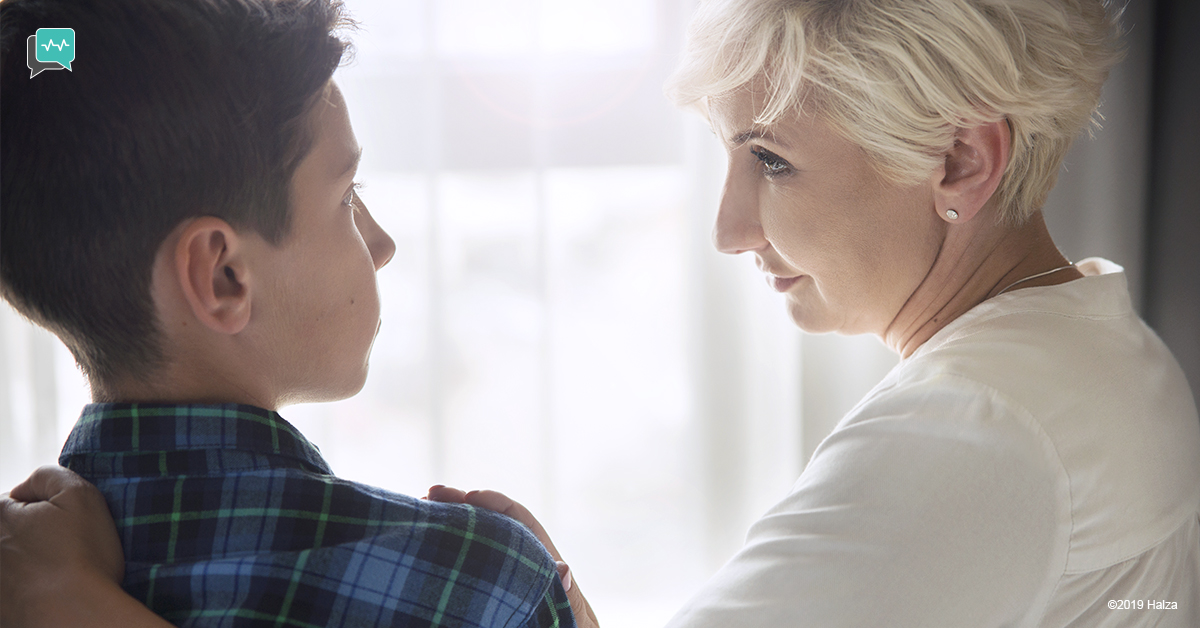
Why Is My Child Asking So Many/Not Enough Questions?
Younger children tend to ask the same question multiple times.
- Each time you answer the question, the child internalizes and understands the answer a bit better. Be patient with their repetitive questioning.
Be prepared for children to ask questions at unexpected times.
- It’s important for children to be able to ask questions as they arise and to talk about their feelings with you. It can be easy to be dismissive of a child’s questions or feelings but acknowledging the feelings and answering the questions as they arise will help the child to feel more secure.
Prepare the Child for Any Change In Routine
Young children may worry about who will feed them, dress them, take them to the park, tuck them into bed, and/or bathe them.
Arrange for someone your child is comfortable with to do these things in the event that you are unable to. If at all possible, begin changes in a routine before you begin treatment so that the new routine feels normal.
My Child Asked If I’m Going to Die. What Do I Say?
Even with an excellent prognosis and expectation of full recovery, this is a hard question to answer.
Physicians rarely pronounce a woman fully “cured” of breast cancer because there are no long-term guarantees. If your prognosis is favorable, you can tell your child that the doctors believe that you will be completely fine again, but that you might not feel well during the treatment.
If your prognosis is uncertain, you can tell young children simply that the doctors and nurses are very smart and are doing everything they possibly can to help Mommy.
If you spend time in the hospital, make sure your child knows that the doctors and nurses always take very good care of you.
Almost no matter what age your child is, they worry about who will take care of them if you die. As best as you can, develop a support system of adults your child is comfortable with. Involve them in your child’s day-to-day life.
Make sure your child knows that there are people who love them unconditionally, just like you do, and will always be there to protect and care for them.
Speaking with young children about death is extremely difficult. If at all possible, involve social workers or therapists who can counsel your child individually, or who can recommend peer support groups or even camps for children in similar situations.
Your hospital or oncologist might be able to connect you with those resources.
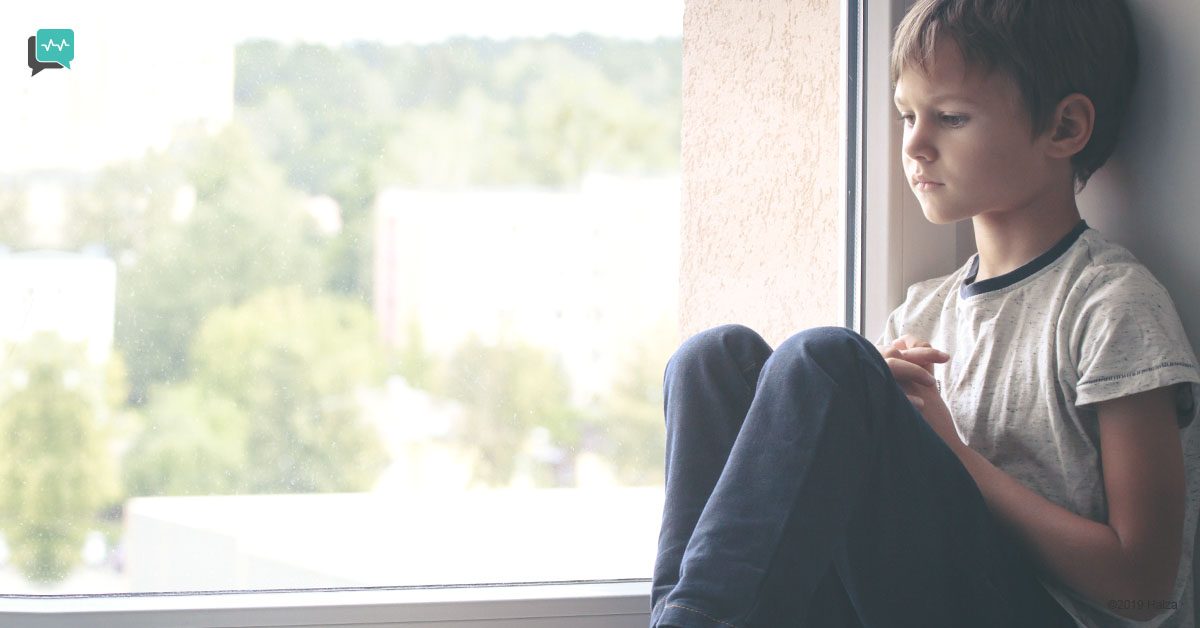
Look for Signs That Your Child Is Having Difficulty Coping
Every child is different, but signs may include:
- Anger
- Withdrawal
- Clinginess and difficulty separating from you.
- Adapting toddler behaviors again, such as baby talk and bedwetting
- Acting out at school
- New anxieties
- Sadness
Of course, some difficulty coping is to be expected. But if any of these signs seem excessive or are significantly affecting a child’s daily life, it is important to find resources that can help.
Also, be sure that your child’s teacher is aware of your situation and has been told what the child knows.
Have Faith in Your Child’s Resilience
For your own peace of mind, know that many, many children have struggled through a parent’s difficult cancer treatment or have lost a parent to cancer, yet go on to live happy, productive, fulfilled lives.
Keep the lines of communication open, surround your child with people who love and care for her, maintain as much normalcy as is reasonably possible, and trust that your child will be ok.
How Halza Can Help
Lighten your health journey with the Halza app.
Update your Vital Signs with your blood test results and tumor markers on your Dashboard, available at a glance. Upload any and all scans, x-rays, and biopsy reports for a comprehensive view of your condition and QuickShare the information with your medical professional in seconds.
Schedule Health Reminders and make sure you never miss an appointment on your road to recovery with the Halza app
Store, track & share all your medical data from one convenient location. Having complete access to the records you need when you want lets you focus solely on recovering.
Download Halza today!